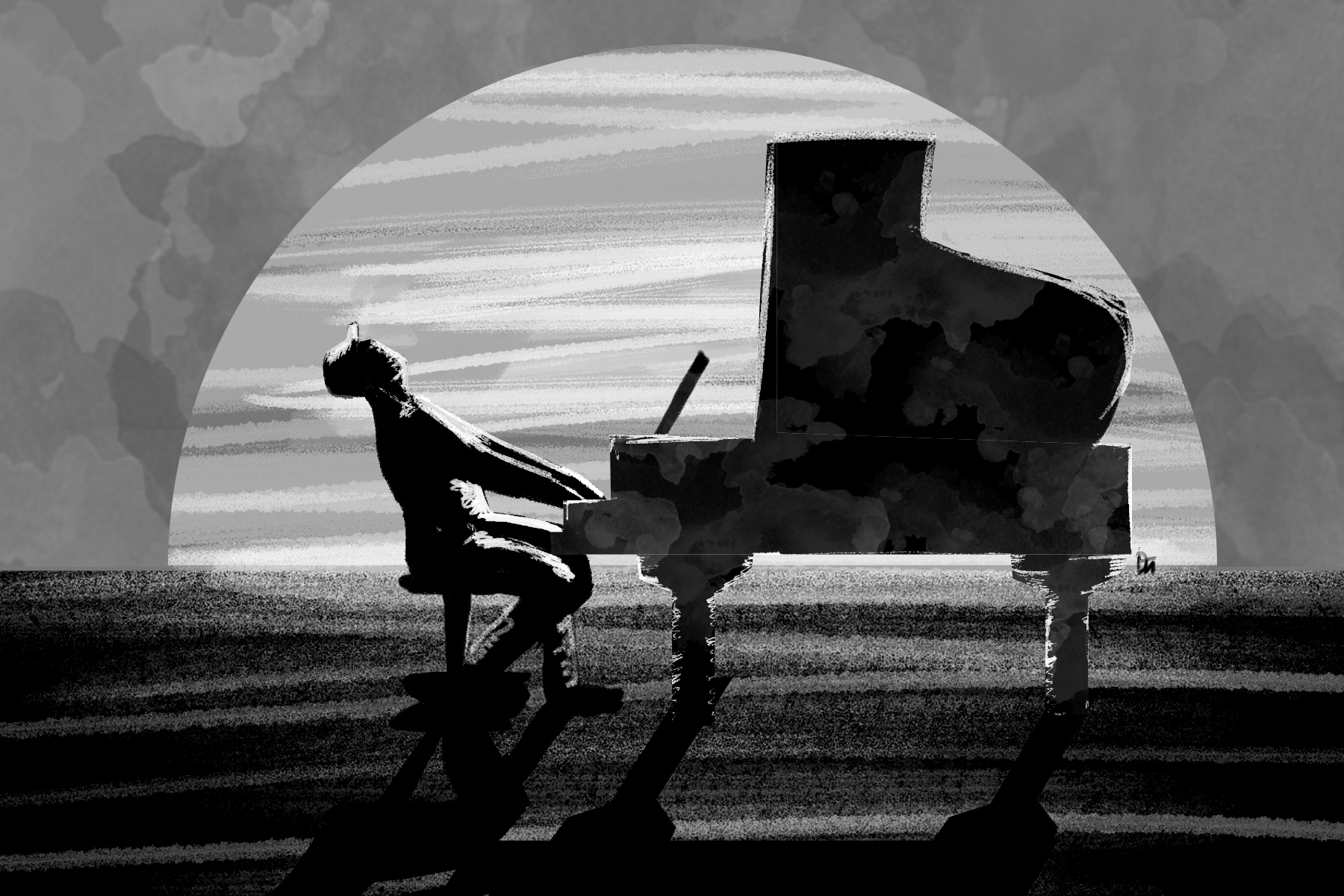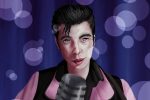Before the film’s release on May 31, audiences expected “Rocketman” to merely be a copy of “Bohemian Rhapsody” after its success last November.
Although both films are musical biopics about iconic British popstars and were directed by the same man, Dexter Fletcher, (who replaced Bryan Singer as director for “Bohemian Rhapsody” after allegations of sexual misconduct) the two films could not be more different.
The biographical musical film “Rocketman” is based on the life of Sir Elton Hercules John, born Reginald Dwight — played by Taron Egerton, who came to fame as Eggsy in “Kingsman: The Secret Service” — and follows his rise as to stardom as well as his struggles with addiction. However, the film is not simply a factual retelling of John’s life. Elements of fantasy and John’s own interpretations of events in his life make John an unreliable, yet somehow honest, narrator.
Jamie Bell, who played Bernie Taupin, remarked on the film’s nature in an interview with CBS. “This is a fantasy movie more than anything,” he said. “It’s not a true representation of the actual details.”
Bernard “Bernie” Taupin collaborated with John on most of his songs, including some of his most famous like “Bennie and the Jets,” “Candle in the Wind” and “Rocket Man.” The film portrays their life-long friendship and how they met accurately, but it shows these events through Elton’s colorful sunglasses lens and changing perspective.
“Rocketman” introduces Taupin and his lyrics after John responded to advertisement for Liberty Records in the UK-based music magazine, New Musical Express. The duo comes together to collaborate on songs and eventually bond, becoming best friends, essentially brothers. All of this is true to their relationship in real life, but the film reflects John’s initial attraction to Taupin.
After moving in with John’s mother, Taupin wrote the lyrics to “Your Song” in the kitchen after breakfast. In an interview, Taupin said that the lyrics are not about any particular person. “It was not to my recollection inspired by anyone,” Taupin said. “Although, at the time, Elton secretly thought it was.”
In the film, Taupin stops and watches John as he composes the music to go along with his lyrics. The chemistry between actors Egerton and Bell in this scene led many fans to believe that the song was written for John, but Taupin confirmed that this is not true. This scene shows John’s perspective at that time in his life and what he thought the lyrics meant when Taupin gave them to him.
Other than the focus on John’s perspective, the film incorporated other fantastical elements into the biography, specifically in scenes where John was intoxicated, preforming or both.
“Elton felt from the very beginning when we started developing the film that he didn’t want it to be just a straightforward biopic,” David Furnish, producer and John’s husband, said to The Hollywood Reporter.
For example, at The Troubadour, a nightclub in West Hollywood famous for popularizing several iconic musicians, John preforms “Crocodile Rock” for an audience naïve about his talents and music. As John and his audience begin to get into the song and sing along with the post-chorus, “Laa, la-la-la-la-laa” and so on, John begins to float. His feet lift up off the ground, and the only thing tethering him to earth are his hands gliding along the piano keys.
Soon after, all the audience members jump and begin to float as well, their feet hovering just above the dance floor. John, then, reacts to the magical moment and looks around the room in astonishment.
People did not float off the ground during John’s performance at The Troubadour, but, from the theater, one can only imagine what it might feel like to preform for the first time in such an iconic venue and to witness John’s rise to stardom. I imagine both of these things would feel an awful lot like floating, and I believe that, in conveying this sensation visually, the film’s creators nailed the atmosphere of John’s performance.
Another instance of the fantastic occurs in the film after the British musician finds his lover and manager, John Reid (played by Richard Madden, aka Robb Stark in “Game of Thrones”) with another man. A distraught and heartbroken Elton John binges on alcohol and drugs while secluding himself from a party at his own home thrown in his honor.
John finally emerged from his room, only to announce to partygoers, family and friends, “For my next trick, I’m going to f–king kill myself,” before jumping into the pool and starting to drown himself. At the bottom of his pool and at his own rock bottom, John sees his young self from earlier in the film. Young and old John sing the beginning of the song “Rocket Man” together as the younger version plays it on a small piano before John is saved from himself and pulled from the pool.
The fanciful element of meeting with his younger self is probably derived from John’s perspective while on several drugs and in a mental state that led him to attempt suicide.
John continues the song soon after. Seemingly recovered from his suicide attempt, the flamboyant singer preforms it at Dodgers Stadium, hits a baseball into the crowd while dressed in a sparkly Dodgers uniform before turning into a rocket, shooting off the stage into space and exploding into fireworks.
These elements of fantasy throughout the film are not limited to John defying gravity during his performances. They also include every time the strangers surrounding John break out into a huge Broadway musical number.
Unlike “Bohemian Rhapsody,” the majority of the musical numbers in “Rocketman” are not limited to practicing in the music studio and stage performances. The music of John’s movie is incorporated into the story and moves the plot forward.
For example, “I Want Love” is performed by young Reggie (played by Kit Connor), his father (played by Steven Mackintosh), his mother (played by Bryce Dallas Howard) and grandmother (played by Gemma Jones). Each line that the character sings correlates with how they are feeling at that point in the film.
In addition to wanting the film to include embellished and fantastical elements, John wanted Egerton to sing the songs in his own way. “He said not to try and sound like him,” Egerton said to The Hollywood Reporter, “which is tough when you’re playing him.”
All of the songs in the film are sung by the actors, rather than John himself, except for “(I’m Gonna) Love Me Again.” He performed this new song with Egerton, and it plays during the end credits of the film.
By having the actors preform their own versions of John’s hits, the film prepares itself for expansion and a potential adaption on stage, or even on Broadway.
Not only do these fantastical elements, use of perspective and the large musical numbers leave audiences wanting a stage rendition of “Rocketman,” but they also set the film apart from the preceding musical biographies, against which critics and fans compared “Rocketman.” It is a marvelous movie in its own right and should absolutely be on your summer watch list.
















